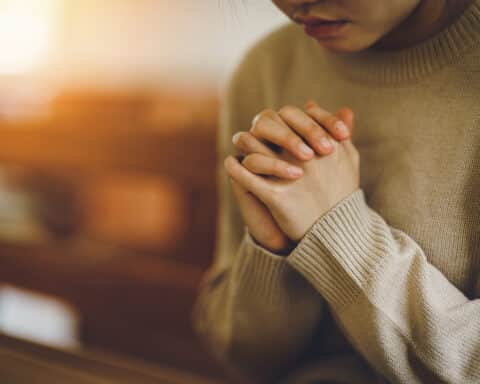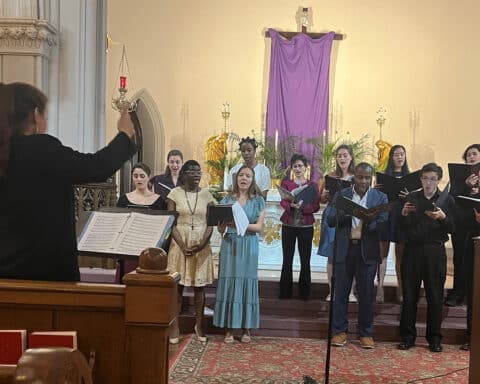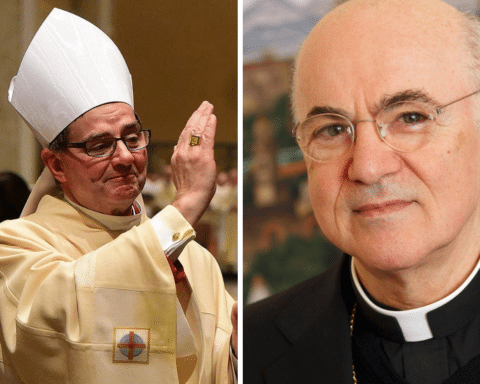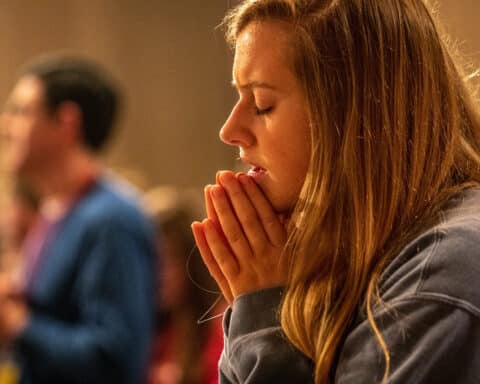Question: When we say the Glory Be prayer, we end by saying “world without end.” I’ve always wondered what is intended here. I thought that Scripture says all things will pass away. So why does the prayer say the world will not end?
— John W. Wathen via email
Answer: The words “world without end” are a traditional but rough translation of the Latin phrase, et in saecula saeculorum, which literally means “and unto ages of ages.” Saeculum does not so much refer to the physical world, but more to temporal things and the passing quality of the world.
Perhaps the most literal rendering of the Latin version of the prayer Glory Be (Gloria Patri) is: “Glory be to the Father, and to the Son, and to the Holy Spirit; as it was in the beginning, and now, and always and unto to ages of ages. Amen.” So the prayer is saying that there always will be glory ascribed to the Trinity: Such glory has always been and always will be. Hence, the Glory Be in Latin isn’t saying the physical world will never end.
As for your reference to “all things passing away,” a distinction ought to be made. Some Scriptures do indicate a kind of annihilation. In one Catholic letter, Peter says that the elements will be dissolved in fire, and the earth and its works will not be found. Since everything will be destroyed in this way, Peter asks readers what kind of people they ought to be (2 Pt 3:11-13).
Another text takes a middle position. In his letters to the Corinthians, St. Paul writes that the form of this world is passing away (1 Cor 7:31). Thus, the world as it is now and appears to be has a passing quality. But this does not necessarily mean that the whole cosmos will one day be annihilated (i.e. brought to nothing) by God. St. Paul also points out in his Letter to the Romans that creation waits in eager expectation because it will be liberated from its bondage to decay and brought into the freedom and glory of the children of God (Rom 8:19-21).
While theologians have their differences about annihilation versus transformation versus replacement, there is a consensus that the present world has been wounded by our sin and is passing. Instead of being annihilated, it will be transformed and seem quite new. And thus, to John who sees a “new heavens and a new earth” at the end of the Book of Revelation, God says, “Behold, I make all things new!” (Rv 21:5).
Freemasons and Catholics
Question: Can a Catholic be a member of the Freemasons and receive Communion during Mass?
— Anne Bernabe via e-mail
Answer: No. The Church often has repeated that membership in Freemasonry is not compatible with being a Catholic. The Vatican is very clear about this when it states that “the Church’s negative judgment in regard to Masonic association remains unchanged since their principles have always been considered irreconcilable with the doctrine of the Church and therefore membership in them remains forbidden. The faithful who enroll in Masonic associations are in a state of grave sin and may not receive holy Communion” (Sacred Congregation for the Doctrine of the Faith, Nov. 26, 1983)
This surprises many Americans who largely regard the Masons as just a harmless men’s organization. But the Masonic lodges and temples throughout the world have many erroneous and pernicious religious notions. They also have a long history of strongly opposing the Catholic Church not only in its doctrine, but also in undermining its structure and her standing in the community.
Msgr. Charles Pope is the pastor of Holy Comforter-St. Cyprian in Washington, D.C., and writes for the Archdiocese of Washington, D.C. blog at blog.adw.org. Send questions to msgrpope@osv.com.





